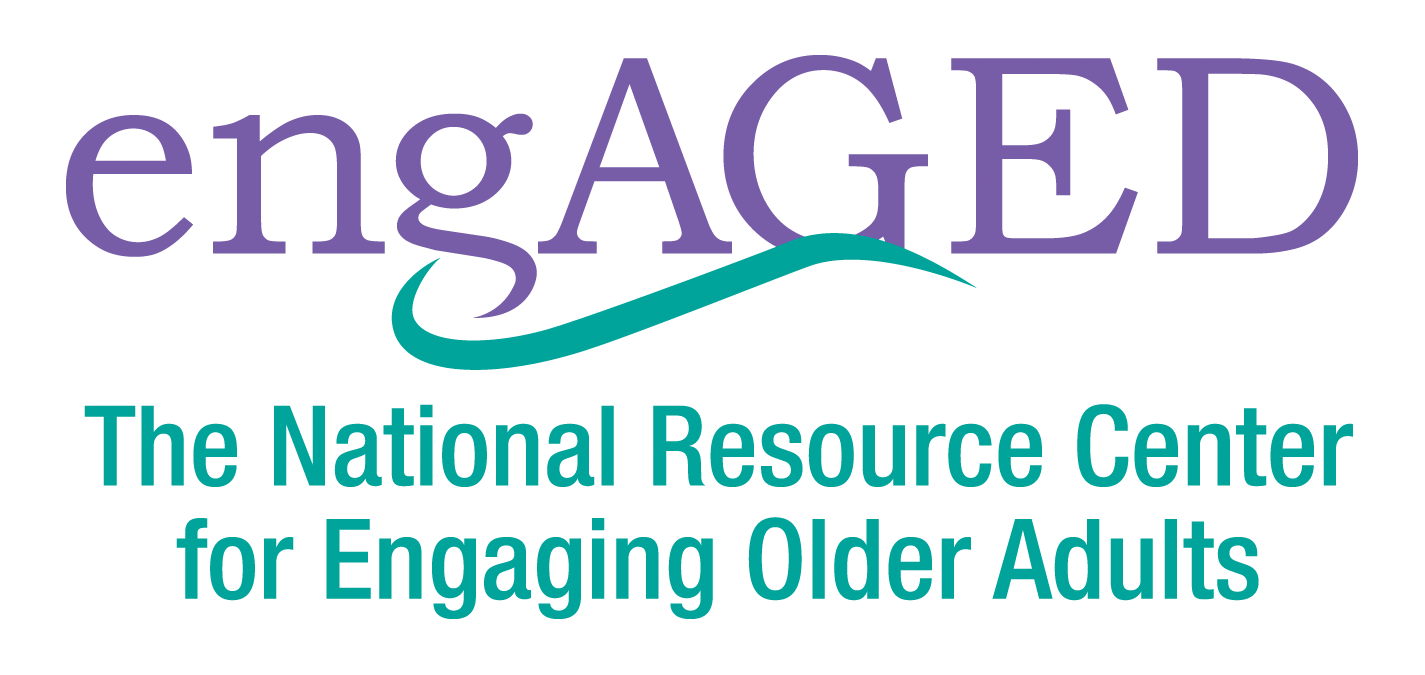Addressing Social Isolation Through Health Care Contracting: Takeaways from the October engAGED Webinar
Held in collaboration with the USAging Aging and Disability Business Institute, our October webinar focused on opportunities for community-based organizations (CBOs) to contract with health care entities to address social isolation.
Socialization Opportunities in CBO-Health Care Contracts
Growing numbers of CBOs are finding new ways to work with health care to address social isolation, a key social determinant of health. The Aging and Disability Business Institute highlighted the increasing interest from health care providers and payers related to programs and services that address social isolation and offer social engagement opportunities.
Adult day care services, evidence-based programs, non-medical transportation, nutrition (congregate and home-delivered meals) and caregiver support are some CBO services related to social isolation currently included in CBO-health care contracts. There will be increased opportunities for CBOs to contract with health care entities moving forward given both new flexibilities that allow Medicare Advantage plans to offer “Social Needs Benefits” and the fact that the COVID-19 pandemic has resulted in an increased number of programs to support social engagement.
Area Agency on Aging (AAA) and Health Care Partnership Example
For the Area Office on Aging of Northwestern Ohio, ongoing work to offer social engagement opportunities for older adults through the agency’s Retired & Senior Volunteer Program coupled with effective relationships with health care partners led to its collaboration with a regional hospital. With the resulting Neighbors Calling Neighbors program, physicians identify socially isolated and/or lonely patients to participate in a weekly friendly caller program that is operated by trained volunteers who also benefit from the social connection resulting from the calls.
The success of this and other Area Office on Aging programs led to additional health care contracts, including a telephone reassurance program for Medicaid members residing in assisted living facilities. In this program, Ohio Medicaid managed care plans recruited employees to serve as call volunteers while the Area Office on Aging provided training and guidance for conducting the calls and administering the UCLA Three-Item Loneliness Scale as the outcome measurement tool.
With another contract with Molina Healthcare, the Area Office on Aging was able to design a program that provides telephone reassurance to all Medicaid recipients in Ohio. In this program, the Area Office on Aging recruits and trains volunteers, assigns volunteers to callers and helps support volunteers, including through volunteer support groups. Nearly 90 percent of individuals served by this program have reported a decrease in social isolation and loneliness and that they are enjoying the phone calls.
Tips for Aging Network Organizations Seeking to Address Social Isolation by Contracting with Health Care
To assist other CBOs looking to contract with health care entities to provide social engagement opportunities, the Area Office on Aging offered the following advice:
Do your Research. Explore existing programs with a natural socialization component and consider what can be done to enhance this work.
Network. Build relationships with health care partners so they can learn more about your social engagement work. For instance, ask someone from a managed care plan to serve on your agency’s advisory board to see first-hand your agency’s approach.
Start small. Learn through your smaller programs what does and does not work.
Be Creative. If funding is not initially available, get creative and look at where you have underutilized assets or staff to help support the program.
Get Staff Involved. With telephone reassurance programs, have team or staff members participate in making the phone calls so they understand the process and the consumer’s experience.
Be flexible. It is okay to make changes and adjust as you implement the program.
Learn More
To learn more about the Area Office on Aging’s experiences, listen to the webinar recording and view the webinar slides.
